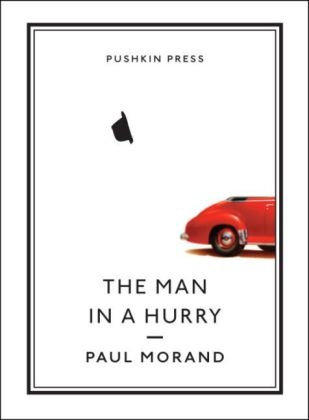Read more
Pierre ruins everything-friendships, love, fatherhood-in his headlong race against time. As he rushes through life, he fails to appreciate those things that are of true value-the tendernesses shown to him by his wife, Hedwige, the poetry of the world. He burns himself up, and burns up those around him, in a constant striving for goals that change as soon as he reaches them. Too late, he will realize that in his haste, he has been hurrying only to arrive more quickly at a meeting with death.
Pushkin Collection editions feature a spare, elegant series style and superior, durable components. The Collection is typeset in Monotype Baskerville, litho-printed on Munken Premium White Paper and notch-bound by the independently owned printer TJ International in Padstow. The Man in a Hurry is the first hardcover release in the Pushkin Collection line.
About the author
Paul Morand, 1888 in Paris geboren, wurde mit 24 Jahren Botschaftsattachee in London, mit 29 Jahren veröffentlichte er seinen ersten Roman. Dem mondänen Leben verschrieben, arbeitete er während der deutschen Besatzung für die Vichy-Regierung, die ihn 1943 als Botschafter nach Bukarest sandte. Nach dem Krieg musste er demissionieren. Seine Kollaboration geriet schließlich in den Hintergrund und er wurde 1968 in die Academie francaise gewählt. Er starb 1976 in Paris
Summary
"Originally published as 'L'homme pressae' in France in 1941"--Colophon.
Foreword
A feverish classic from one of the modern masters of French prose.
Report
"Pushkin Press's gorgeous new edition of Morand's masterpiece, written in 1941, is a shockingly clever farce. . . This is a strange book, written in prose as speedy as its impossible hero, and Morand deserves to be widely revisited both for the ageless appeal of his style and the specific (sometimes worrying) portrait of human nature at war with 1940s modernity." - Publishers Weekly
"Admired both by Ezra Pound and by Marcel Proust as a pioneer craftsman of Modernist French prose... The sheer shapeliness of his prose recalls Hemingway; the urbanity of his self-destructiveness compares with Fitzgerald's; and his camera eye is as lucidly stroboscopic as that of Dos Passos." - The New York Times
"The translation's prose is refined and worldly, the atmosphere European, the overall effect that of a jeu d'esprit. . . The four women's curious behavior recalls moments in Mervyn Peake's Gormenghast novels and Eugenides' Virgin Suicides." - Kirkus Reviews
"Morand was the all-round aesthete." - Nicholas Lezard, Guardian
"Morand was a citizen of the world, with a sharp eye and a neat turn of phrase." - Tablet
"Without a doubt the best French writer of the twentieth century." - Philippe Sollers

